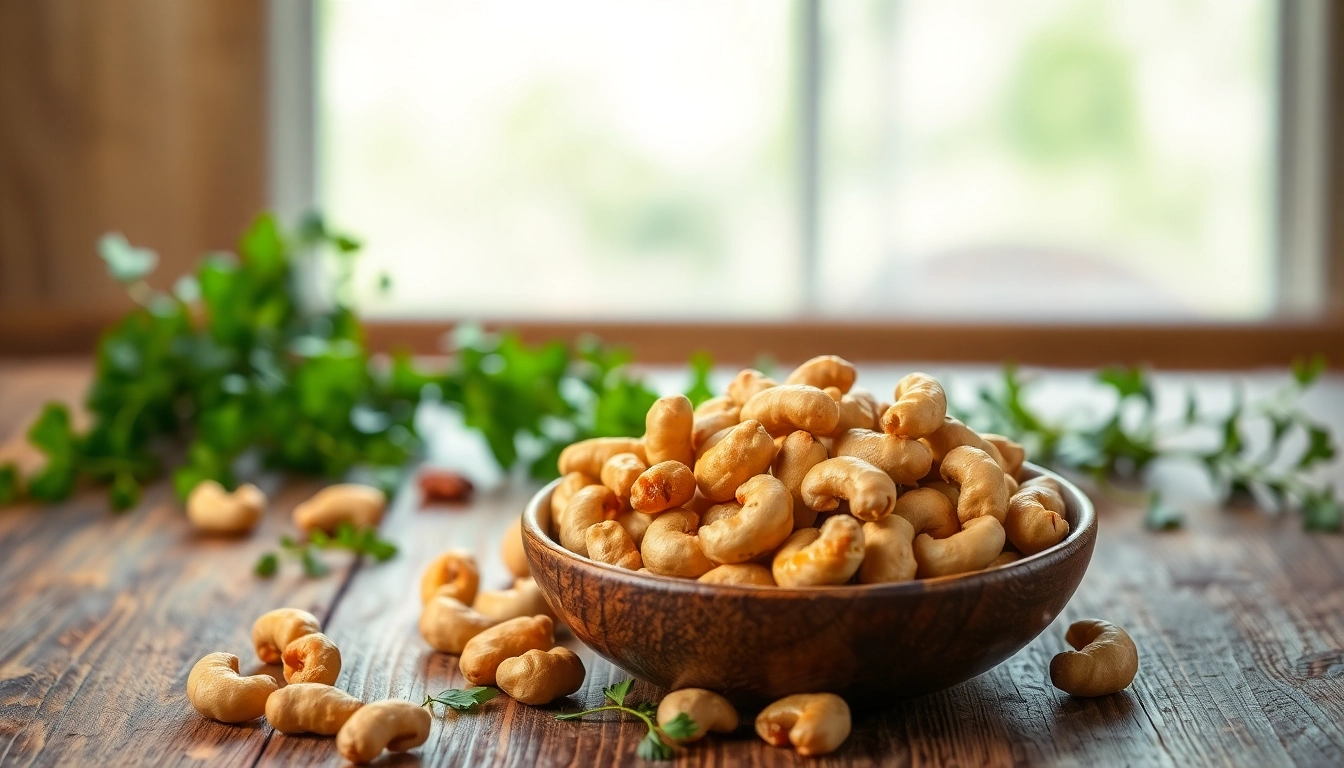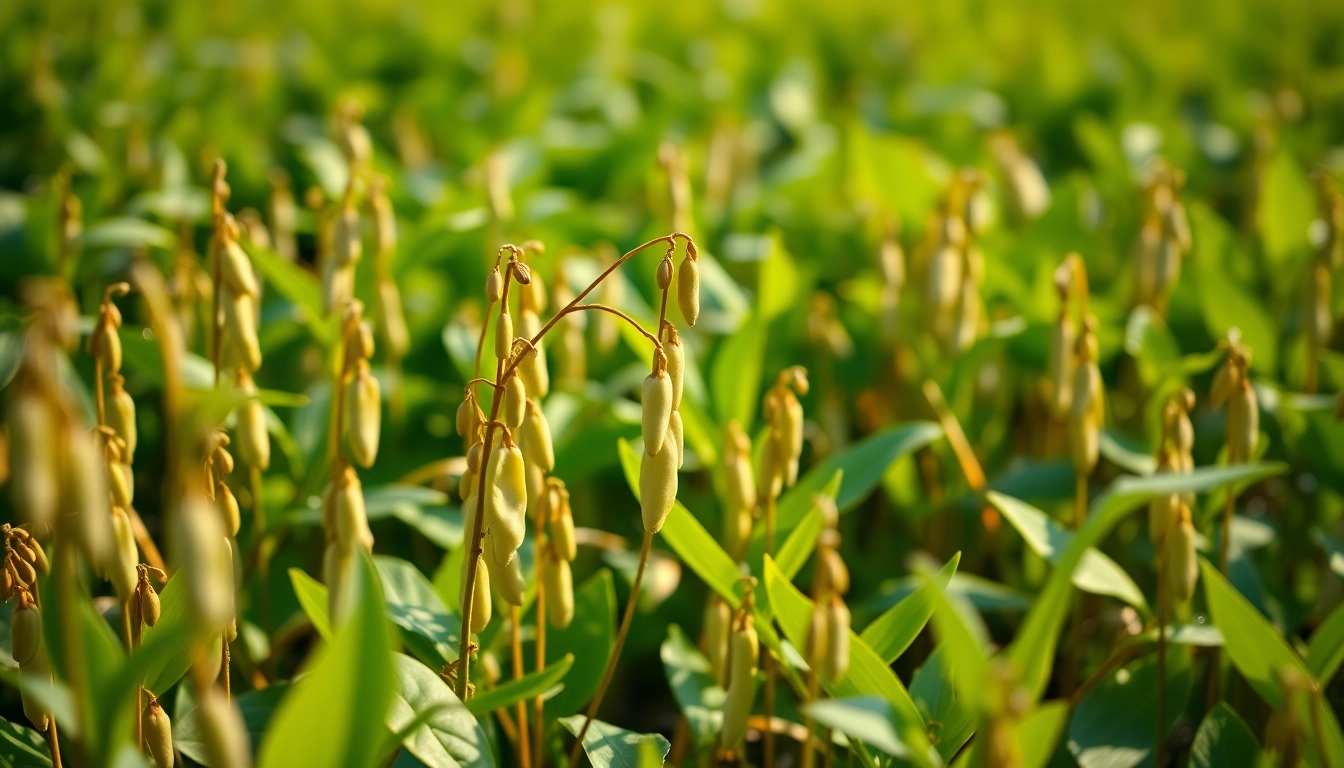What Are Cashew Nuts?
Cashew nuts, scientifically known as Anacardium occidentale, are not just delicious morsels often found in snack mixes or gourmet dishes; they have a rich history and a unique place in the culinary world. These nuts originate from the cashew tree, which is native to Brazil but is now widely cultivated in various tropical regions around the world, including India, Vietnam, and Africa. As a beloved snack, cashews also serve versatile roles in innovative recipes, healthy diets, and culinary explorations. This article delves into the fascinating world of cashew nuts, exploring their origin, culinary significance, health benefits, and storage tips while focusing on enhancing your culinary journey with this delightful ingredient. With their butter-like flavor and creamy texture, they’re a perfect addition to savory and sweet dishes alike. Find out more about how Cashew Nuts can elevate your meals.
Understanding the Cashew Nut’s Origin
The cashew tree is a tropical evergreen that thrives in warm climates. Indigenous to Northeastern Brazil, it was once a favorite among native tribes who utilized its various parts, including its fruit, known as the cashew apple. The unique nut that we enjoy today is actually the seed of this fruit. Portuguese explorers took the cashew tree to India in the 16th century, and from there, it spread to other tropical regions. Today, India and Vietnam are among the largest producers of cashew nuts, making significant contributions to the global market.
Physical Characteristics of Cashew Nuts
Cashew nuts are kidney-shaped and have a smooth, pale exterior with a creamy color and slight sheen. They are typically found encased in a hard shell with a toxic resin, which is why they must undergo processing before being consumed. The uncooked cashews are never sold to consumers due to this toxicity; instead, they’re carefully roasted or steamed to make them safe for eating. This process also enhances their flavor. Inside the shell, you’ll find the coveted edible nut that we know and love.
Culinary Significance of Cashew Nuts
From being a standalone snack to an essential ingredient in curries, sauces, and desserts, cashew nuts hold a versatile spot in both traditional and contemporary cooking. They are often used in Asian cuisine, particularly in Indian dishes like korma or in Chinese stir-fries where the nutty flavor complements the vegetables and proteins. Moreover, cashew nuts can be blended to create a creamy texture in vegan dishes, serving as a delightful base for cheese alternatives, sauces, and dressings. Their delicate flavor pairs well with spices, making them a great addition to flavor-rich dishes.
Health Benefits of Cashew Nuts
Cashew nuts are more than just a tasty ingredient; they are packed with nutrients that can enhance your overall health. Known for their robust nutritional profile, cashews provide a range of benefits that make them a worthwhile addition to your diet.
Nutritional Profile of Cashew Nuts
A typical serving of cashew nuts (about 28 grams or around a handful) contains approximately 157 calories, making them a relatively energy-dense food. This serving also provides:
- 5 grams of protein
- 12 grams of fat (primarily healthy unsaturated fats)
- 9 grams of carbohydrates
- 1 gram of dietary fiber
- Significant amounts of copper, magnesium, phosphorus, and manganese
With their rich nutrient content, cashews support various bodily functions including energy production, immune function, and bone health.
Heart Health and Cashew Nuts
Regular consumption of cashew nuts has been associated with heart health benefits. They contain healthy monounsaturated and polyunsaturated fats, which can help lower bad cholesterol levels and promote good cholesterol (HDL). Additionally, the copper found in cashews plays a vital role in maintaining cardiovascular health by aiding in the formation of hemoglobin and enhancing blood circulation. Studies indicate that individuals who include nuts in their diet may have a reduced risk of heart disease, underscoring the importance of incorporating cashews into a balanced diet.
Cashew Nuts for Weight Management
While cashews are calorie-dense, they can still be beneficial for weight management. The presence of protein and fiber can contribute to feelings of satiety, which may prevent overeating. A study published in the National Institutes of Health suggests that incorporating nuts, including cashews, into a diet can actually be linked to weight loss, as long as they are consumed in moderation. Their satisfying texture can make them a smart snack choice, replacing less nutritious options and contributing to a healthier eating pattern.
How to Use Cashew Nuts in Cooking
The versatility of cashew nuts extends to their use in various culinary applications. They can be used whole, chopped, or ground into flour or paste, making them an integral ingredient in a wide range of recipes.
Top Recipes Featuring Cashew Nuts
There are countless recipes that showcase the unique flavor of cashew nuts. Here are some ideas:
- Cashew Chicken Stir-Fry: A quick and healthy dish combining lean chicken, vibrant vegetables, and a savory sauce, topped with roasted cashews for a satisfying crunch.
- Vegan Cashew Cream: Blending soaked cashews with nutritional yeast, lemon juice, and garlic creates a creamy sauce ideal for pasta or as a pizza topping.
- Curried Cashew Nuts: Toss cashews in a mixture of spices and bake them as a tasty snack or a flavorful addition to salads and grain bowls.
- Chocolate-Covered Cashews: For a sweet treat, dip roasted cashews in dark chocolate and sprinkle with sea salt for a perfect balance of sweet and savory.
Cashew Nut Substitutes in Diets
For those with nut allergies, finding substitutions for cashew nuts can be crucial. Sunflower seeds or pumpkin seeds can often fill the void in recipes that call for cashews, providing similar textures and flavors. In creamy recipes, silken tofu or coconut cream can serve as alternatives, maintaining the desired creaminess without the use of nuts.
Cashew Nuts in Vegan and Vegetarian Dishes
Cashew nuts have gained popularity as a staple in vegan and vegetarian diets due to their unique ability to mimic dairy products. They can be blended with water to create a creamy base for sauces or soups or used to make cheese substitutes that are perfect for pizza or dip recipes. Additionally, their natural sweetness complements a variety of dishes, allowing them to shine in desserts, smoothies, and snacks.
Buying and Storing Cashew Nuts
When purchasing cashew nuts, it’s crucial to know what to look for to ensure quality. Proper storage can also play a significant role in maintaining their freshness and flavor.
Choosing Fresh Cashew Nuts
To choose the best cashew nuts, look for those that are plump and free from blemishes or mold. Check for visible signs of freshness, such as a shiny appearance. Avoid nuts that have a rancid smell, as they may have gone bad. Buying in bulk from reputable sources can help ensure you’re getting high-quality cashews.
Proper Storage for Longevity
For optimal freshness, store cashew nuts in an airtight container in a cool, dark place away from direct sunlight. A refrigerator or freezer can extend their shelf life, especially for larger quantities. When stored properly, cashews can last for six months in the pantry and up to a year in the freezer.
Cashew Nuts Price Trends
The price of cashew nuts can fluctuate based on various factors, including supply chain variables, international demand, and harvest sizes. On average, you can expect to pay between $5 to $10 per pound, though prices can vary significantly based on grade and whether they are raw, roasted, or flavored. Keeping an eye on market trends can help consumers make informed decisions about their purchases.
Cashew Nuts: Myths and Facts
While cashew nuts are a popular snack, many misconceptions surrounding them can lead to confusion. Addressing these myths can help clarify their benefits and uses.
Are Cashew Nuts Healthy or Harmful?
A common myth is that cashew nuts are unhealthy due to their high-fat content. However, they primarily contain healthy fats that support heart health. Consumed in moderation as part of a balanced diet, cashew nuts can offer numerous health benefits rather than negatively impacting health.
Common Misconceptions About Cashew Nuts
Another misconception is that cashew nuts are a true nut like almonds or walnuts. In actuality, cashews are seeds of a fruit and classified botanically as a “soft-shelled” nut, which can lead to confusion among consumers. Additionally, some believe that all cashew nuts are roasted; however, they can also be found raw, lightly salted, or seasoned in various flavors.
Cashew Nuts Compared to Other Nuts
When it comes to comparing cashew nuts with other nuts like almonds or walnuts, it’s essential to note the nutritional variations. While almonds are higher in fiber and vitamin E, cashews are richer in certain minerals like copper and magnesium. Each nut provides unique benefits, making it valuable to include a variety of nuts in your diet for comprehensive nutrition.



